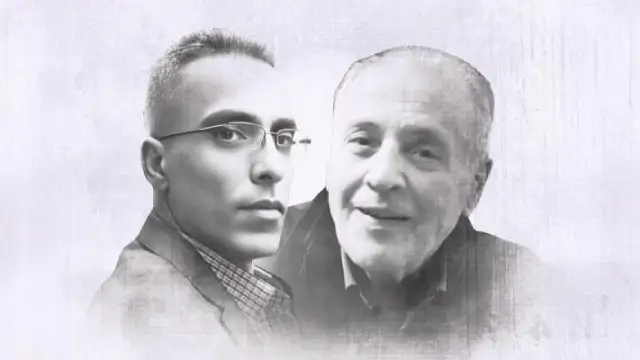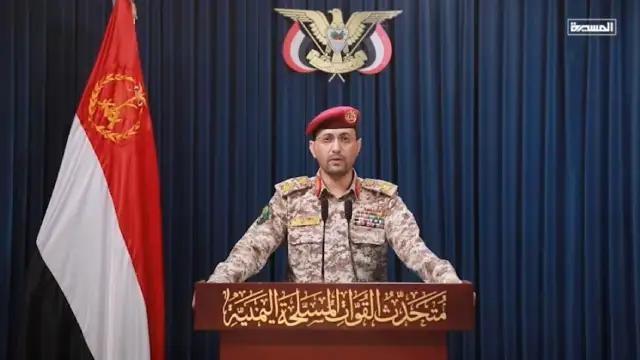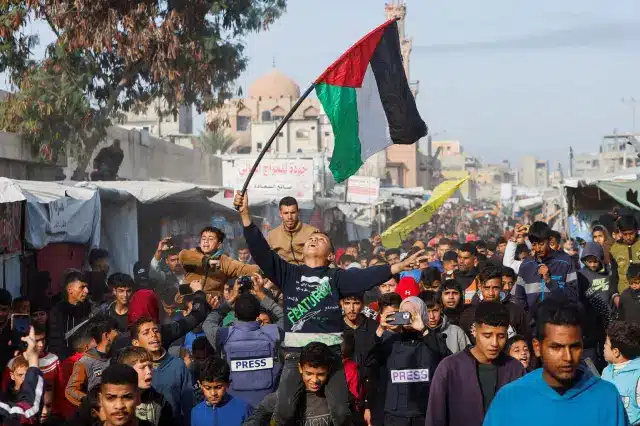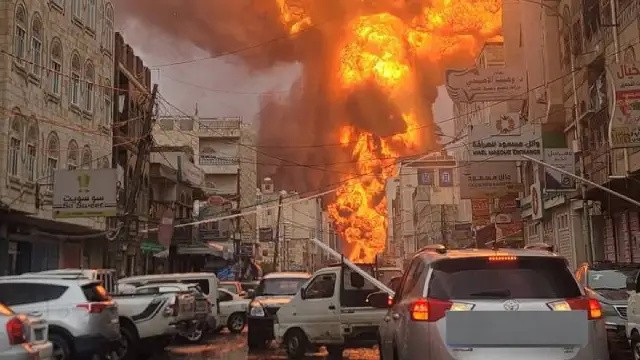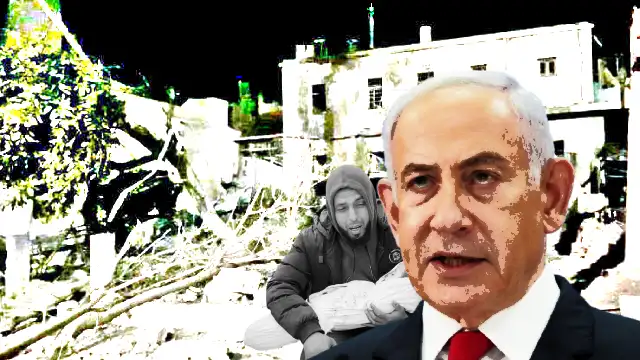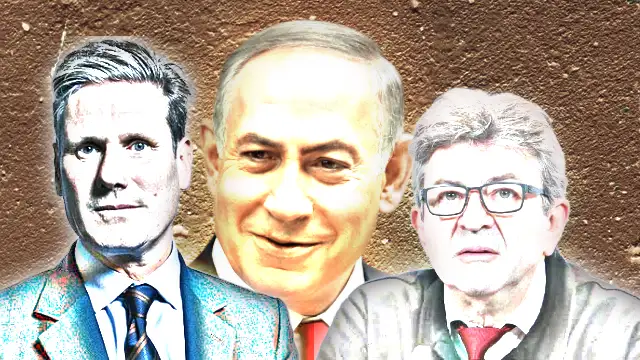On Friday, August 8th, 2025, as news spread of two Palestinian fighters killed in an Israeli airstrike on Lebanese soil, an extraordinary display of solidarity emerged across ideologically disparate resistance movements. The assassination of Popular Front for the Liberation of Palestine’s (PFLP) senior leader and General Central Committee member Muhammad Khalil Wishah, aka “Abu Khalil” Wishah, alongside field commander Mufid Hassan Hussein, prompted condolence statements that revealed how sustained conflict has forged unprecedented unity between communist, Islamist and nationalist organisations across the region.
An Israeli airstrike killed the PFLP leader and Mr Hussein on the Masnaa Road in the Bekaa Valley in Lebanon on Thursday, the left-wing organisation announced. Mr Wishah became one of the high-profile resistance targets the Israelis have assassinated in recent months.
For the PFLP, Mr Wishah is also one of the top leaders to fall prey to Israeli attacks in the current phase of the conflict.
The unity of the resistance demonstrated that shared struggle against Israeli operations, now approaching two years in Gaza and one year in Lebanon, has created bonds that transcend traditional ideological boundaries.
The outpouring of solidarity from Hamas, Hezbollah, and numerous secular Palestinian factions illustrated how the reality of resistance has overcome theoretical divisions.
A communist organisation founded on Marxist-Leninist principles received heartfelt condolences from Islamist movements, suggesting that common cause has proven more powerful than doctrinal differences in shaping contemporary Palestinian and regional resistance politics.
PFLP hails revolutionary legacy of Abu Khalil Wishah and Mufid Hussein
The PFLP, in its August 8th statement, mourned the killing of Mr Wishah and Mr Hussein, hailing their roles in the resistance struggle against Israel.
“Abu Khalil” Wishah, born in Gaza in 1954, joined the PFLP in 1973 during its most active period of international operations. The organisation described him as someone who “stood tall in the face of all storms, never compromising on the fundamentals of the cause, nor retreating from his principles.”
The communist leader’s biography reflects the PFLP’s particular approach to resistance, not confined within the boundaries of Palestine but spread across the region.
“He participated in the battles to defend the revolution and the invasion of Lebanon in 1982. He participated in the Mountain War in Lebanon in 1983,” the PFLP said about Mr Wishah.
The PFLP portrayed Mr Wishah as embodying their vision of complete liberation, saying, “The martyr was the son of the true Palestine, which he had always imagined as complete and united, from its river to its sea, from Naqoura to Rafah.”
Field commander Mufid Hassan Hussein, born in 1973 in the Yarmouk Camp, represented a younger generation shaped by decades of displacement.
The PFLP noted that “he firmly believed that the homeland deserves to be sacrificed for it with all that is precious and dear.” His trajectory from refugee camp to senior commander illustrated how the organisation continues recruiting from Palestinian diaspora communities.
While highlighting the supreme sacrifices made by Mr Wishah and Mr Hussein, the PFLP pledged to continue the struggle, saying, “We pledge, by their pure blood, that we will remain faithful to their pledge, continuing in their footsteps until the return, victory, and complete liberation of Palestine from its river to its sea are achieved.”
As the PFLP mourned Mr Wishah and Mr Hussein, it found the entire resistance family, in Palestine and Lebanon, joining it.
Hamas bridges ideological chasms
Perhaps most remarkable was the response from Hamas, the Islamic Resistance Movement, whose founding charter explicitly rejected secular approaches to Palestinian liberation. Ali Baraka, head of Hamas’s National Relations Department abroad, offered condolences that acknowledged fundamental ideological differences while emphasising tactical unity.
“With deep sorrow and pride, we received the news of the martyrdom of the struggling leader Muhammad Khalil Wishah ‘Abu Khalil’— a member of the Central Committee, and his comrade, the martyred field commander Mufid Hasan Hussein. They were both killed in a cowardly assassination operation carried out by the treacherous Zionist enemy yesterday,” Mr Baraka said in the statement.
“The two martyrs were an example of sacrifice and giving,” Mr Baraka declared. “Through their sacrifices, they embodied unity on the battlefield and true belonging to the Palestinian cause,” he added.
Hamas’s condolence statement’s careful phrasing recognised that combat effectiveness often matters more than theoretical alignment in resistance operations.
Hamas’s willingness to mourn secular communist leaders publicly represented a significant departure from its traditional positions. The movement’s 1988 charter had specifically rejected leftist approaches to Palestinian liberation, declaring that “secular thought is diametrically opposed to religious thought”.
Yet changed realities, especially years of shared struggle against Israeli occupation, have now eroded such rigid distinctions, exhibited in Mr Baraka’s statement.
“We affirm that their pure blood will be a curse on the occupation and fuel the resistance until the occupation is defeated and the land and holy sites are liberated,” Hamas declared, using religious language to honour secular fighters.
This linguistic adaptation demonstrated how Islamist movements have modified their rhetoric to accommodate broader resistance coalitions. The military wings of these two diametrically opposite organisations operate together under challenging circumstances against their common enemy.
The Hamas leader concluded with the Islamist organisation’s traditional slogan, “It is a jihad of victory or martyrdom”, while applying it to commemorate communist fighters.
This represented a remarkable evolution from Hamas’s early years, when cooperation with secular organisations remained limited and often contentious.
Hezbollah’s strategic solidarity with PFLP
Hezbollah, the Lebanese resistance movement that combines Islamist ideology with sophisticated military capabilities, issued condolences that positioned the Palestinian deaths within broader regional resistance frameworks.
“We, in Hezbollah, offer our deepest condolences to our brothers in the leadership of the Popular Front for the Liberation of Palestine and to the families of the two dear martyrs,” the organisation said.
Hezbollah’s War Media Unit declared: “We affirm that the blood of the martyrs will not be in vain, but rather will strengthen the determination of the Axis of Resistance to continue on the path until the liberation of the land and holy sites.”
Remarkably, the PFLP is a part of the greater Axis of Resistance, built by Iran, a staunch Islamist state.
By linking Palestinian communist fighters to its own “Axis of Resistance”, the Iranians have demonstrated sophisticated coalition-building capabilities that prioritise strategic objectives over doctrinal purity.
The statement revealed how Hezbollah conceptualises resistance networks as transcending national and ideological boundaries.
“We congratulate the Front and our honourable people on this medal that hangs on the chest of the resistance,” Hezbollah added in honour of PFLP leader Mr Wishah and his comrade, Mr Hussein.
Left mourns PFLP leader Abu Khalil Wishah and Hussein
Other left and secular organisations also poured their condolences to the PFLP over the killing of Abu Khalil (Mr Wishah) and Mr Hussein.
The Palestinian People’s Party in Lebanon, representing the leftist secular tradition, condemned what they termed “this heinous Zionist crime”.
“We affirm that targeting leaders and fighters will only strengthen our people’s resolve to adhere to the option of struggle and resistance, and to maintain national unity in defence of their dignity and their legitimate rights to freedom, return, and independence,” the organisation stated.
“What we learned about the two martyred comrades, their lives and stances, embody the image of sincere fighters committed to the causes of their people. We, the Palestinian People’s Party, offer our deepest condolences to you, to the families of the two martyrs, and to all our comrades in the Popular Front. We pledge to remain loyal to the blood of the martyrs and to adhere to the principles for which they were martyred, until our people achieve their goals of freedom, independence, and return,” it further added.
Similarly, the Central Follow-up Committee of Palestinian Popular Committees in Lebanon described the victims as “ever-shining torches on the path of freedom and liberation” while pledging to “continue on this path until we achieve our people’s goals of building an independent state with Jerusalem as its capital.”
The PFLP-General Command, despite organisational separation from the mainstream PFLP years ago, offered condolences that emphasised shared revolutionary commitment: “History bears witness that our people have presented inspiring models of the meaning of sacrifice and martyrdom, especially as they face the most heinous and brutal massacre known to history.”
“We pledge to continue the revolution, and together we will achieve victory on the path to liberating the land and the people,” the PFLP-GC added.
Regional implications of resistance convergence
The convergence around mourning Palestinian communist leaders reflects broader transformations in West Asian resistance politics. Nearly two years of intensive Israeli operations in Gaza and approaching one year of expanded Lebanon aggression have created shared experiences that transcend traditional factional boundaries.
This unity through common struggle presents significant challenges for Israeli strategic planning, which has historically relied on exploiting divisions between Palestinian factions and their regional allies.
As Israeli forces prepare to launch their assault to seize control of the entire Gaza Strip and establish a puppet administration, as Benjamin Netanyahu’s cabinet has disclosed on Friday, the united approach of the resistance may pose a major threat to its ambitions.
Sustained military pressure by Israel has been producing outcomes opposite to those intended by Tel Aviv’s strategists. Rather than widening fissures within the resistance—be it on the question of continuing the armed struggle or agreeing to a ceasefire in return of aid for civilians—Israeli atrocities have cemented ties among different factions.
This is exemplified when each victim of Israeli aggression is considered as a “martyr” by both communists and Islamists, underscoring their emphasis on Palestinian national identity and cause.
Resistance’s evolution beyond ideology
The condolences offered for PFLP leader Abu Khalil Wishah and Mufid Hassan Hussein demonstrate how shared sacrifice has become the foundation for unprecedented cooperation between communist and Islamist resistance movements. As Israeli operations intensify and casualties mount, organisations find themselves bound together by common experience rather than ideological agreement.
This represents a fundamental shift from earlier periods when Palestinian resistance remained fragmented along doctrinal lines. The willingness of Hamas and Hezbollah to publicly honour PFLP communist leaders suggests that practical considerations increasingly outweigh theoretical differences in shaping resistance alliances.
The implications extend beyond immediate tactical cooperation to questions of long-term Palestinian political development. If communist and Islamist organisations can maintain the solidarity forged through shared struggle, they may emerge from current conflicts with unprecedented capacity for coordinated action against Israeli policies.
The mourning of two PFLP leaders, Mr Wishah and Mr Hussein, thus becomes a window into broader transformations reshaping West Asia’s resistance. The convergence of communist and Islamist movements around Palestinian liberation suggests that sustained conflict has created new forms of political organisation that transcend traditional categories of analysis.
Join our channels on Telegram and WhatsApp to receive geopolitical updates, videos and more.

